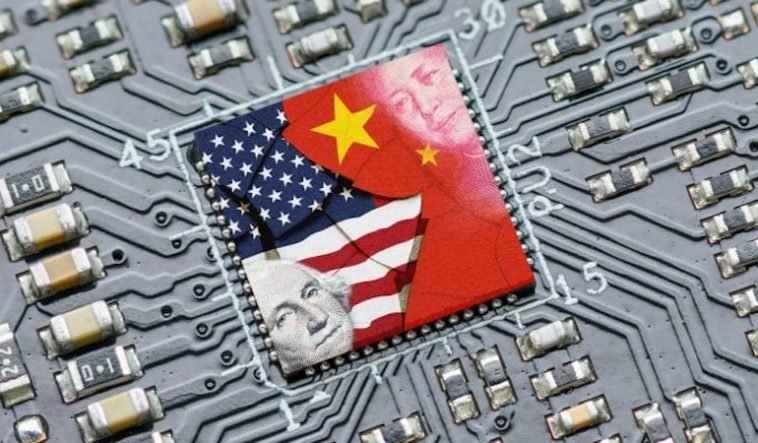The Dutch government recently announced implementing new export restrictions on cutting-edge semiconductor technology. These restrictions come as part of a deal between The Hague, Tokyo, and the U.S. to limit sales to China. The details of this deal were previously undisclosed until now.
Liesje Schreinemacher, the Netherlands’ trade minister, outlined the new measures in a letter to parliament. While the specific chipmaking machines affected were not disclosed, companies must apply for licenses to export this technology. Schreinemacher stressed that these measures would only apply to the highest specification systems capable of producing the smallest and most powerful chips. This includes some of the deep lithography (DUV) tools manufactured by the Dutch company ASML.
“Given the technological developments and geopolitical context, the [Dutch] cabinet has concluded that it is necessary for (inter) national security to expand the existing export control of specific semiconductor production equipment,” she wrote.
ASML, a Dutch company that produces chipmaking machines, has confirmed that only specific models will be affected by these restrictions. According to a statement released by ASML, they have not received any detailed information regarding the exact definition of “most advanced.” However, they believe that it pertains to the critical immersion technology used in their TWINSCAN NXT:2000i and later models, which produce high-capacity chips. This new export control will be applicable before commencing the summer season.
ASML has already banned exporting its most advanced technology EUV tools to China since 2019.
The U.S. has successfully persuaded its allies, the Netherlands and Japan, who manufacture vital chipmaking technology, to restrict China’s access to the latest and most advanced chips that could be utilized in advanced military equipment and other sophisticated machinery.
Schreinemacher said it’s crucial to implement global controls on exporting military systems. She intends to advocate for this at forums such as the Wassenaar Group. This group includes developed countries that restrict the export of military-related goods. However, the U.S. has bypassed this group recently because it includes Russia and works by consensus.
Five months ago, the U.S. imposed export controls to prevent China from obtaining advanced semiconductors or improving its ability to manufacture them domestically. The U.S. agreed on a combined approach with Japan and the Netherlands in January. However, until Wednesday, all the countries had yet to share any of the agreed-upon details.
In October, the U.S. made a mostly independent move by imposing restrictions on U.S. chip manufacturing toolmakers, including Applied Materials, Lam Research, and KLA, from exporting equipment to China.
U.S. officials at the time said it was an effort to show U.S. allies., particularly the Netherlands and Japan, that Washington was willing to put “skin in the game” by introducing regulations that hurt U.S. toolmakers in the hope that the two countries would follow suit.
With each passing day, the U.S. is tightening the ropes around China to lower its technological advancement. A few days earlier, the U.S. banned TikTok in U.S. land.


